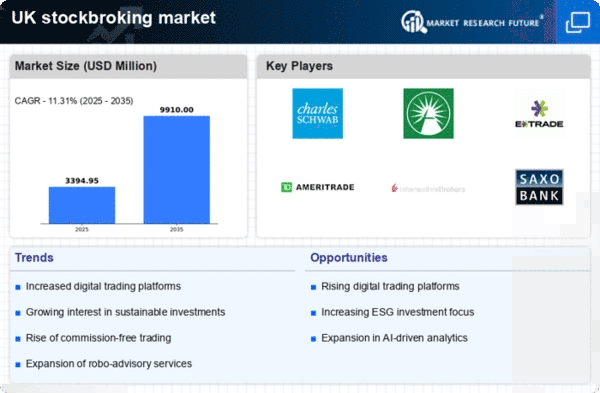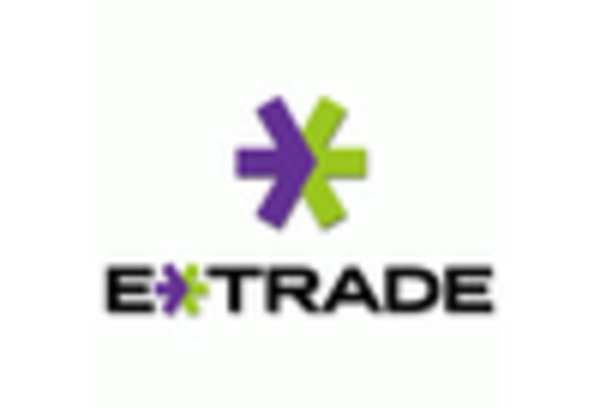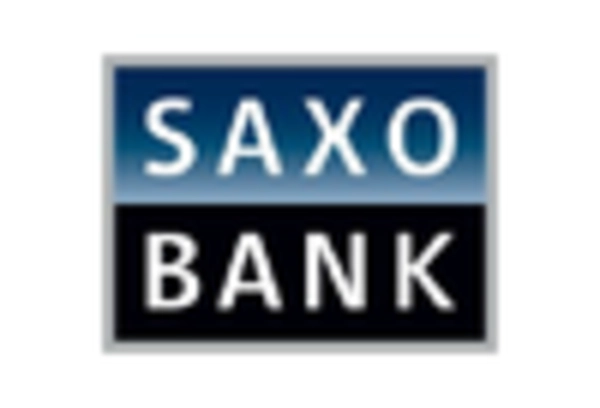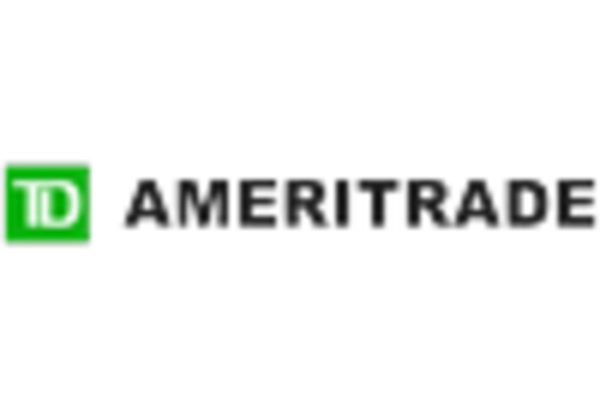Evolving Regulatory Landscape
The stockbroking market is currently navigating an evolving regulatory landscape that impacts operational practices. Recent regulatory changes in the UK have focused on enhancing transparency and protecting investors. For instance, the Financial Conduct Authority (FCA) has implemented stricter guidelines on fee disclosures and trading practices. As of November 2025, compliance with these regulations is crucial for stockbrokers to maintain their licenses and reputations. This regulatory environment may lead to increased operational costs for firms, but it also fosters trust among investors. Consequently, the stockbroking market is likely to see a shift towards more ethical practices, which could enhance long-term sustainability.
Growing Interest in ESG Investments
The stockbroking market is experiencing a growing interest in Environmental, Social, and Governance (ESG) investments. As of November 2025, approximately 25% of UK investors are prioritizing ESG criteria in their investment decisions. This trend reflects a broader societal shift towards sustainability and ethical investing. Stockbrokers are responding by expanding their offerings to include ESG-compliant funds and providing resources to educate investors on sustainable options. The stockbroking market is thus adapting to meet the demands of socially conscious investors, which may lead to a reallocation of capital towards more sustainable enterprises. This shift could potentially reshape investment strategies and influence market performance.
Increased Retail Investor Participation
The stockbroking market is witnessing a notable increase in retail investor participation. Recent data suggests that retail investors accounted for nearly 40% of total trading volume in the UK as of November 2025. This trend is driven by the proliferation of online trading platforms and the accessibility of financial information. Retail investors are increasingly seeking to manage their own portfolios, often motivated by the desire for financial independence. The stockbroking market is adapting to this shift by offering educational resources and tools tailored to novice investors. This growing engagement from retail investors is likely to influence market dynamics, as their trading behaviors and preferences become more pronounced.
Technological Advancements in Trading Platforms
The stockbroking market is currently experiencing a surge in technological advancements, particularly in trading platforms. The integration of artificial intelligence and machine learning is enhancing trading efficiency and decision-making processes. As of November 2025, approximately 60% of trades in the UK are executed through automated systems, indicating a shift towards algorithm-driven trading. This trend is likely to attract a younger demographic, who prefer user-friendly interfaces and mobile accessibility. Furthermore, the rise of fintech companies is fostering competition, compelling traditional brokers to innovate. The stockbroking market is thus evolving rapidly, with technology playing a pivotal role in shaping investor experiences and operational efficiencies.
Impact of Economic Conditions on Investment Strategies
The stockbroking market is significantly influenced by prevailing economic conditions, which shape investment strategies. As of November 2025, the UK economy is showing signs of recovery, with GDP growth projected at 2.5% for the upcoming year. This economic environment is likely to encourage increased investment activity, as investors seek to capitalize on growth opportunities. However, inflationary pressures and interest rate fluctuations may also lead to cautious approaches among investors. The stockbroking market must navigate these complexities, as economic indicators directly impact investor sentiment and trading volumes. Understanding these dynamics is essential for stockbrokers to tailor their services and strategies effectively.
















